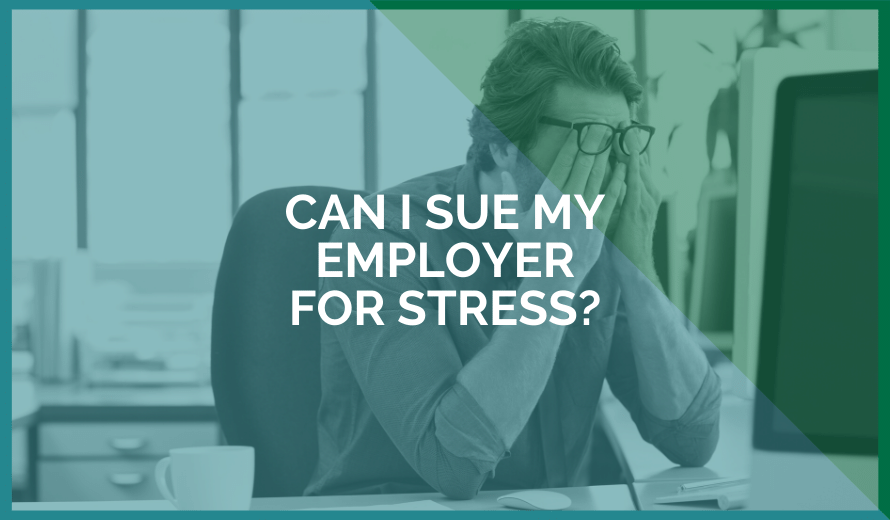Can I Sue My Employer: Exploring Your Legal Options
When workplace disputes escalate, employees often wonder, “Can I sue my employer?” It’s a valid question, as understanding your legal options is crucial when facing issues at work. This comprehensive guide will navigate you through the complexities of suing your employer, shedding light on the circumstances, legal grounds, and steps involved. Let’s dive in.
Employment Disputes and Legal Action
Types of Employment Disputes
Before considering legal action, it’s essential to identify the type of employment dispute you’re facing. Common issues that may lead to disputes with your employer include:
- Wrongful Termination: If you believe you were fired unjustly, you may have grounds for legal action.
- Discrimination: Cases of workplace discrimination based on race, gender, age, or other protected characteristics can result in disputes.
- Harassment: Persistent harassment, whether sexual or non-sexual, can create a hostile work environment.
- Wage and Hour Disputes: Disagreements over wages, overtime pay, or unpaid work hours can lead to legal claims.
- Retaliation: When you experience retaliation for engaging in legally protected activities, such as whistleblowing or filing complaints, you may have a valid claim.
Considering Legal Action
Not all workplace disputes warrant legal action, but certain circumstances may justify pursuing a lawsuit against your employer. Consider the following factors:
- The severity of the Issue: Assess the gravity of the problem and whether it significantly impacts your work or well-being.
- Evidence: Gather evidence to support your claim. This may include documents, emails, witness statements, or photographic proof.
- Consulting an Attorney: Seek legal counsel to evaluate the merits of your case. An attorney can provide invaluable insights into the strength of your claim and the potential outcomes.
Can You Sue Your Employer?
Legal Grounds for Suing Your Employer
Understanding the legal grounds for suing your employer is essential. Here are some common bases for employment-related lawsuits:
- Breach of Contract: If your employer violates the terms of your employment contract, you may have a valid claim.
- Wrongful Termination: Wrongful termination claims arise when you are fired in violation of employment laws, contractual agreements, or public policy.
- Discrimination: Workplace discrimination based on race, gender, religion, disability, or other protected characteristics can lead to legal action.
- Harassment: Suffering from harassment at work, whether sexual or non-sexual, can be grounds for a lawsuit.
- Retaliation: If your employer retaliates against you for engaging in protected activities like whistleblowing or reporting illegal practices, you may have a case.
Understanding Employer Liability
Employer liability plays a crucial role in employment-related legal claims. It refers to the legal responsibility of employers for the actions of their employees in the course of employment. Key considerations include:
- Direct Liability: Employers can be directly liable for their actions or negligence that lead to harm or discrimination against an employee.
- Vicarious Liability: Employers may also be vicariously liable for the actions of their employees if those actions occur within the scope of employment.
- Strict Liability: In some cases, strict liability may apply, holding employers responsible regardless of intent.
Before proceeding with a lawsuit, consult an attorney to determine the extent of your employer’s liability in your specific case.
When you’re contemplating legal action against your employer, careful and strategic steps are necessary to build a strong case. Here’s what you should consider:
Documentation and Evidence
Why It Matters: Thorough documentation and strong evidence are the backbone of any legal case. They substantiate your claims and significantly strengthen your position.
What to Do:
- Keep a Detailed Record: Maintain a comprehensive journal of all relevant incidents, including dates, times, locations, individuals involved, and descriptions of what transpired.
- Preserve Communication: Save emails, text messages, memos, or any written communication related to the dispute. These can serve as crucial evidence.
- Collect Witness Statements: If there were witnesses to the incidents, gather their statements or testimonies. Witness accounts can corroborate your claims.
- Seek Medical or Therapeutic Treatment: If the dispute has taken a toll on your mental or physical health, seek professional treatment. Medical or therapy records can document the impact on your well-being.
Consulting with an Attorney
Why It Matters: Consulting with an experienced employment attorney is pivotal in evaluating the merits of your case and navigating the legal complexities.
What to Do:
- Find an Employment Attorney: Seek an attorney who specializes in employment law and has experience with cases similar to yours.
- Case Evaluation: Share all the details of your situation with the attorney for a thorough case evaluation. They will assess the strength of your claim.
- Legal Guidance: Your attorney will provide expert legal advice, inform you of your rights, and discuss potential courses of action.
- Representation: If you decide to proceed, your attorney will represent your interests, negotiate on your behalf, and, if necessary, file a lawsuit on your behalf.
Alternative Dispute Resolution (ADR)
Why It Matters: Before rushing into a lawsuit, consider alternative dispute resolution methods that may offer quicker and less adversarial solutions.
What to Do:
- Mediation: Mediation involves a neutral third party who helps facilitate discussions between you and your employer to reach a mutually agreeable resolution.
- Arbitration: Arbitration is a more formal process where an arbitrator hears both sides of the dispute and makes a binding decision.
- Negotiation: Direct negotiations with your employer, often with the assistance of legal counsel, can lead to settlements without formal legal action.
: Can I still sue my employer after leaving the company?
- A: Yes, you can sue your former employer after leaving the company. However, it’s essential to be aware of statutes of limitations, which set deadlines for filing lawsuits. Consulting with an attorney promptly after leaving is advisable to ensure you meet the necessary deadlines.
Q6: What are the potential outcomes of suing my employer?
- A: The outcomes of suing your employer can vary widely. Successful lawsuits may result in monetary compensation, reinstatement, or negotiated settlements. It’s important to discuss potential outcomes and expectations with your attorney to make informed decisions.
In conclusion, the decision to sue your employer is a significant step that should be taken after careful consideration and consultation with legal counsel. Understanding the legal grounds, documenting incidents, seeking expert advice, and exploring alternative dispute resolution methods can all contribute to a more successful resolution of your workplace dispute. Remember that you have rights as an employee, and seeking justice for workplace injustices is a valid course of action.





